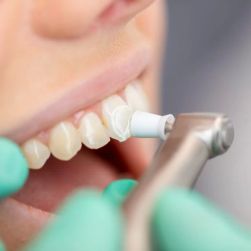Ensuring the oral health of children is a fundamental concern for parents and caregivers. While regular dental check-ups and proper brushing techniques are crucial components of dental care, diet plays a significant role in maintaining a child’s oral health. Understanding this connection provides parents with the tools necessary to foster lifelong dental habits and prevent cavities and gum disease from an early age. In this article, we explore the impact of diet on children’s oral health, offering insights into the foods that fortify their teeth and gums.
The Vital Role of Nutrients in Oral Health
Nutrient-rich foods are essential to the development and maintenance of healthy teeth and gums in children. Foods high in calcium and phosphorus, such as dairy products, leafy greens, and nuts, help rebuild and strengthen tooth enamel. Additionally, vitamin D promotes calcium absorption, making it a crucial element of a child’s diet. Research from the American Dental Association highlights that adequate levels of vitamin D can significantly reduce the risk of tooth decay. Furthermore, vitamin C, abundant in citrus fruits and vegetables like broccoli, is vital for healthy gums and can prevent gingivitis by supporting collagen production in gum tissue. Establishing a balanced diet rich in these nutrients is a proactive step in safeguarding a child's dental health.
The Dangers of Sugar and Acidic Foods
While it's tempting to indulge children with sweet treats, excessive sugar consumption is a primary contributor to tooth decay. Sugary snacks and drinks create an acidic environment in the mouth, which can erode enamel and lead to cavities. A study conducted by the Centers for Disease Control and Prevention (CDC) found that children who consume high amounts of sugary beverages are at increased risk for dental caries. Acidic foods and drinks, such as citrus juices and soda, can also weaken enamel and should be limited. Parents can mitigate these risks by providing healthier alternatives, such as water, milk, and whole fruit, and by encouraging children to rinse their mouths with water after consuming sugary or acidic foods. Regularly including these practices helps minimize the detrimental effects of these dietary choices on a child’s oral health.
The Importance of Fiber-Rich Foods
High-fiber foods are not only beneficial for digestive health but also play a critical role in oral hygiene. Foods like apples, carrots, and whole grains have a natural scrubbing effect on teeth, stimulating saliva production and helping clear food particles and plaque from the mouth. Increased saliva production is advantageous because saliva acts as a natural defense against acids produced by bacteria in the mouth that cause decay. The Journal of Dental Research has published findings that support the consumption of fibrous fruits and vegetables as part of a preventative approach to dental health. Incorporating these foods into a child’s diet can enhance their oral health naturally, providing an enjoyable way to help clean their teeth while eating.
Habits for Long-Term Oral Health
Establishing healthy eating habits early on is crucial for promoting lifelong oral health. Parents can play a pivotal role by modeling and reinforcing healthy dietary choices. Creating a routine that includes regular meals rich in nutrients while avoiding processed, sugary snacks is essential. Additionally, involving children in food preparation and educating them about the benefits of different foods for their teeth can empower them to make informed choices. The Dentistry Toothtruth website emphasizes the importance of positive reinforcement and education in cultivating these habits, ensuring children grow up understanding the impact of their diet on oral health. Consistently practicing these habits will lead to a healthier lifestyle and improved dental outcomes both now and in the future.
In conclusion, diet is a cornerstone in the foundation of children’s oral health. From vital nutrients and dangers of sugar to the benefits of fiber-rich foods, understanding the influence of dietary choices empowers parents to better support their children’s dental wellbeing. By fostering healthy eating habits and selecting foods that promote strong teeth and gums, parents can contribute significantly to their child’s oral health. As highlighted in this article from Dentistry Toothtruth, staying informed and proactive about diet can lead to a lifetime of healthy smiles. For parents who wish to delve deeper into children's dietary needs for optimal oral health, consulting with a pediatric dentist can provide personalized guidance and support.






